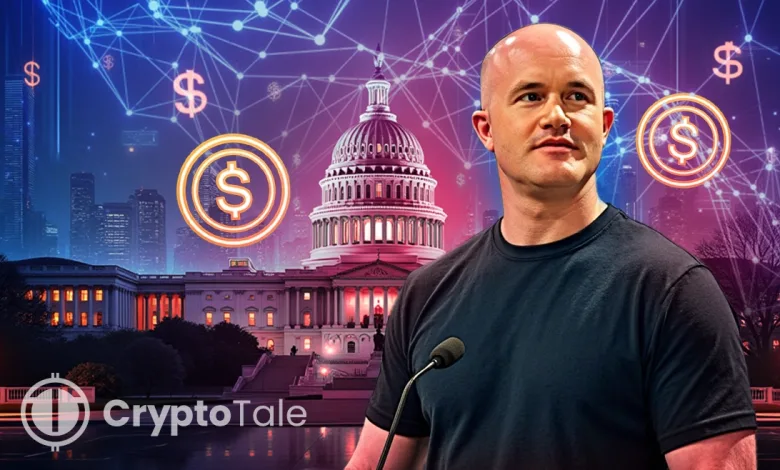Coinbase CEO Urges U.S. to Allow Interest on Stablecoins

Brian Armstrong, the CEO of Coinbase, requested Congress through X to alter stablecoin rules. He stated that consumers need access to earn “onchain interest” rates from stablecoin assets, mirroring the functionality of traditional bank accounts. According to Armstrong, existing laws establish a regulatory advantage for banks, leading to an imbalance between banking institutions and crypto firms. The plan aligns with free-market principles, which seek to benefit consumers directly.
Stablecoins, such as USDC, maintain a 1:1 peg with the U.S. dollar, backed by assets like short-term Treasuries. Issuers currently retain the interest from these investments. Armstrong’s push for on-chain interest seeks to redirect this yield to holders, offering a potential 4% return. This contrasts sharply with the 0.41% average yield on U.S. savings accounts in 2024, highlighting a gap he believes legislation can bridge.
Economic Benefits of Onchain Interest
Armstrong’s plan benefits the economy by providing additional financial advantages. According to his observations, stablecoins possess larger U.S. Treasury reserves than other countries. If interest payments were enabled, global adoption of dollar-backed stablecoins would increase, strengthening U.S. financial supremacy. He said the modification would increase Treasury investments while strengthening digital economic growth.
With inflation at 3% in 2024, traditional savings accounts erode purchasing power. Onchain interest could offer a market-rate yield, empowering individuals to preserve and grow their wealth. Beyond the U.S., billions of underbanked people worldwide could access stable, interest-earning USD via crypto networks, requiring only an internet connection.
Related: Coinbase Urges Brazil to Rethink Stablecoin Regulations
Legislative Hurdles and Current Proposals
The STABLE Act and GENIUS Act are the two main proposals in the stablecoin legislation. Neither currently permits interest-bearing stablecoins. The STABLE Act includes a ban against issuer payment of interest, yet the GENIUS Act eliminates yield-bearing instruments from its classifications. Based on his assessment, Armstrong predicts the U.S. will lose billions of USD users and trillions of cash flows unless changes are made.
However, Bryan Steil, a representative, noted that the bills could be compatible after amendments and said that the differences were not fundamental, whereas Senator Elizabeth Warren criticized the legislation as the president tried to fund a new USD1 stablecoin project with World Liberty Financial. She accused him of corrupting the process for self-gain. On the other hand, House Majority Whip Tom Emmer spoke against putting stablecoin issuers within the Bank Secrecy Act’s framework, a position that could guide future proposals.




